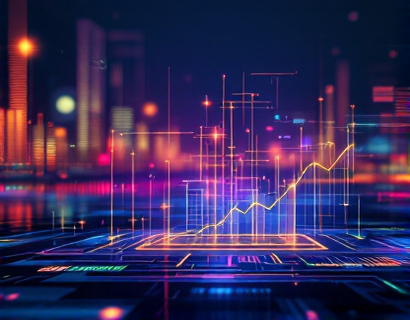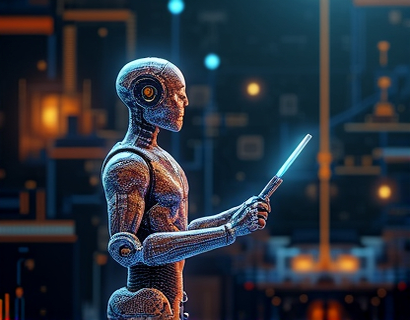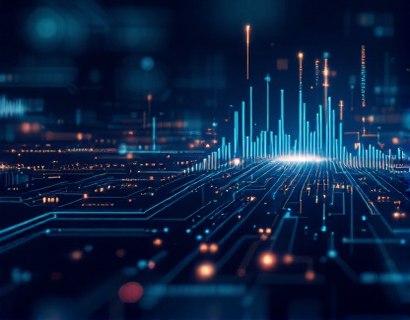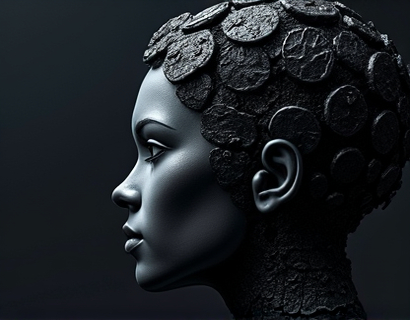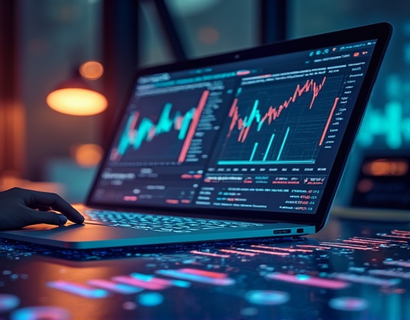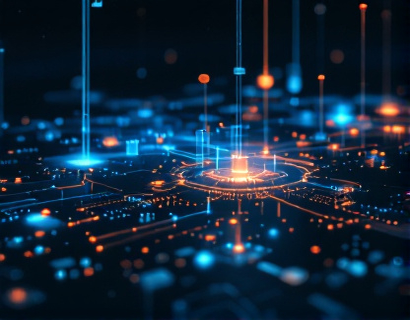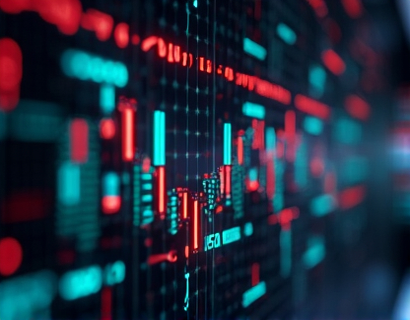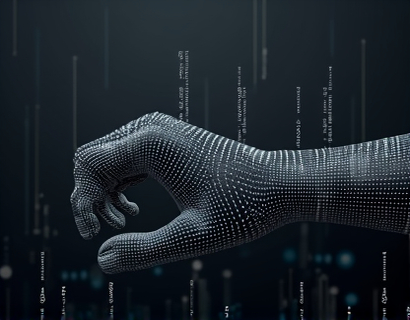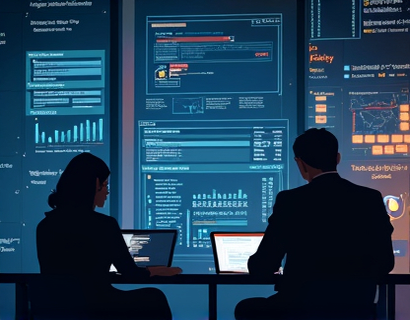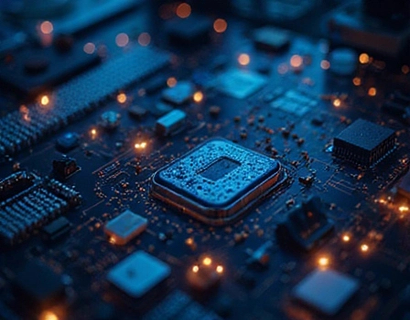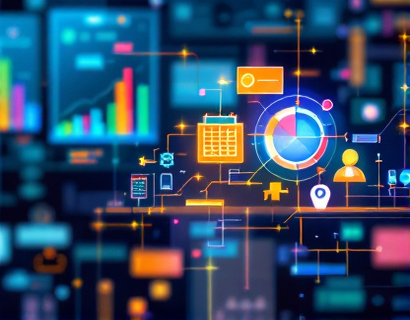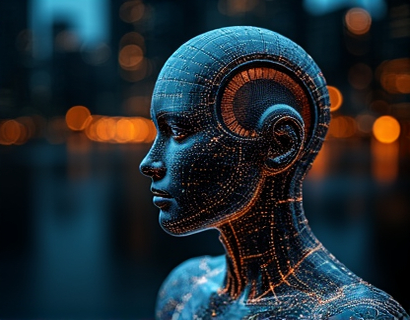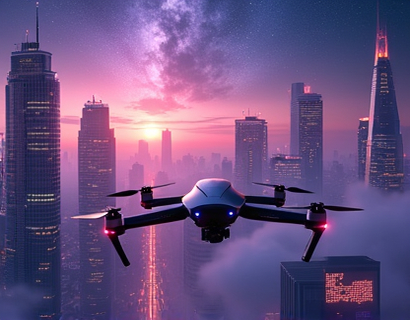Transforming Digital Experiences: The Synergy of Crypto and AI
The intersection of cryptocurrency and artificial intelligence (AI) is revolutionizing the digital landscape, offering unprecedented opportunities for tech innovators and early adopters. This convergence is not just about combining two advanced technologies but about creating a new paradigm for digital engagement, security, and efficiency. As we delve into this topic, we will explore how the integration of crypto and AI is reshaping online experiences, providing advanced solutions that enhance online presence and streamline access to cutting-edge applications.
Understanding the Basics: Crypto and AI
To fully appreciate the transformative potential of crypto and AI, it's essential to understand the fundamentals of each technology. Cryptocurrency, a digital or virtual currency, uses cryptography for security and operates on a decentralized network, typically a blockchain. This decentralized nature ensures transparency, security, and reduces the need for intermediaries.
Artificial intelligence, on the other hand, involves the simulation of human intelligence processes by machines, particularly computer systems. These processes include learning (the acquisition of information and rules for using it), reasoning (using rules to reach approximate or definite conclusions), and self-correction. AI can operate autonomously or be integrated into existing systems to enhance their functionality.
The combination of these two technologies creates a powerful synergy. Crypto provides a secure and transparent platform for transactions and data storage, while AI brings intelligence and automation to processes, making them more efficient and insightful.
Enhancing Security with Crypto and AI
One of the most significant benefits of integrating crypto and AI is the enhancement of security measures in digital environments. Traditional security systems often rely on centralized databases, making them vulnerable to hacking and data breaches. By leveraging blockchain technology, data can be distributed across a network of computers, reducing the risk of a single point of failure.
AI plays a crucial role in this enhanced security framework. Machine learning algorithms can detect anomalies and patterns that indicate potential security threats in real-time. For instance, AI can monitor blockchain transactions for unusual activity, such as unexpected large transfers or repeated failed login attempts, and trigger alerts or automated responses to mitigate risks.
Moreover, AI can improve the security of private keys and wallet management. By using AI-driven authentication methods, such as behavioral biometrics, the system can verify user identities based on unique patterns like typing speed, device usage, and other behavioral traits. This adds an extra layer of security beyond traditional password-based systems.
Optimizing User Experiences with AI
The integration of AI in crypto-driven platforms can significantly enhance user experiences. Personalization is a key area where AI excels. By analyzing user behavior and preferences, AI algorithms can tailor content, recommendations, and services to individual needs. For example, a crypto-focused news platform can use AI to curate articles based on a user's reading history and interests, ensuring they receive the most relevant information.
Chatbots powered by AI can also revolutionize customer support in the crypto space. These bots can handle a wide range of queries, from basic account information to complex transaction issues, providing instant and accurate responses. This not only improves user satisfaction but also reduces the workload on human support teams.
Furthermore, AI can optimize the user interface and experience (UI/UX) of crypto applications. By analyzing user interactions, AI can identify pain points and suggest design improvements. For instance, AI can determine which features are most frequently used and make them more accessible, or it can redesign navigation menus to reduce user friction.
Streamlining Transactions with Smart Contracts and AI
Smart contracts, self-executing contracts with the terms directly written into code, are a cornerstone of blockchain technology. When combined with AI, smart contracts can become even more powerful and efficient. AI can analyze vast amounts of data to predict outcomes and automate decision-making processes within smart contracts.
For example, in decentralized finance (DeFi) applications, AI can assess creditworthiness in real-time, enabling faster and more accurate loan approvals through smart contracts. This reduces the need for manual verification and speeds up the lending process. Similarly, AI can optimize trading strategies by analyzing market trends and executing trades automatically, enhancing the efficiency of crypto trading platforms.
Another area where AI and smart contracts intersect is in supply chain management. By integrating AI with blockchain, each step in the supply chain can be recorded and verified, ensuring transparency and traceability. AI can predict potential bottlenecks or issues and trigger smart contracts to adjust processes dynamically, improving overall efficiency.
Data Analytics and Insights with AI
Data analytics is a critical component of both crypto and AI ecosystems. The ability to process and analyze large datasets can provide valuable insights that drive decision-making and innovation. AI algorithms can sift through vast amounts of data from blockchain transactions, social media, and other sources to uncover patterns and trends.
For tech innovators, this means access to actionable insights that can inform product development, marketing strategies, and risk management. For instance, by analyzing user behavior on crypto platforms, developers can identify popular features and areas for improvement. Similarly, businesses can use AI-driven analytics to understand market sentiment and adjust their strategies accordingly.
Moreover, AI can enhance the security and privacy of data analytics. By anonymizing sensitive information and detecting potential data breaches, AI ensures that valuable insights are gained without compromising user privacy. This is particularly important in the crypto space, where data security is paramount.
Decentralized Applications (DApps) and AI
Decentralized applications (DApps) are a natural fit for the crypto and AI convergence. DApps operate on a blockchain network and offer decentralized alternatives to traditional centralized applications. When AI is integrated into DApps, the potential for innovation increases exponentially.
For example, AI-powered DApps can offer personalized investment advice, leveraging machine learning algorithms to analyze market data and provide tailored recommendations. These DApps can also include AI-driven prediction tools, allowing users to forecast market trends and make informed decisions.
In the realm of gaming, AI can create more realistic and adaptive non-playable characters (NPCs), enhancing the gaming experience. Additionally, AI can manage in-game economies, ensuring balance and fairness through dynamic pricing and resource allocation.
Challenges and Considerations
While the integration of crypto and AI offers numerous benefits, it also presents several challenges that must be addressed. One of the primary concerns is regulatory compliance. The crypto space is still largely unregulated, and the use of AI adds another layer of complexity. Developers and businesses must navigate varying legal frameworks to ensure compliance and avoid potential penalties.
Another challenge is the technical complexity of integrating these technologies. Developing robust systems that seamlessly combine blockchain, AI, and other components requires specialized expertise. This can be a barrier for smaller organizations or individual developers.
Privacy is also a significant concern. While AI can enhance security, it can also raise questions about data usage and user privacy. It's crucial to implement transparent and ethical AI practices, ensuring that user data is handled responsibly and with consent.
Future Prospects: The Road Ahead
The future of crypto and AI is bright, with numerous opportunities for growth and innovation. As technology advances, we can expect more sophisticated integrations that further enhance digital experiences. For instance, the development of quantum computing could revolutionize AI capabilities, enabling even more complex and efficient processes on blockchain networks.
Interoperability between different blockchain platforms and AI systems will also become more prevalent, creating a more connected and seamless digital ecosystem. This will allow for greater collaboration and innovation, as developers can build on existing frameworks and leverage a wider range of tools and resources.
Moreover, the rise of Web3, a decentralized internet powered by blockchain technology, will provide a fertile ground for crypto and AI to thrive. Web3 applications will benefit from the security, transparency, and automation offered by these technologies, creating a more equitable and user-centric digital environment.
In conclusion, the convergence of crypto and AI is transforming digital experiences, offering advanced solutions that enhance security, personalization, and efficiency. For tech innovators and early adopters, embracing this synergy can lead to significant advantages in the ever-evolving digital landscape.







